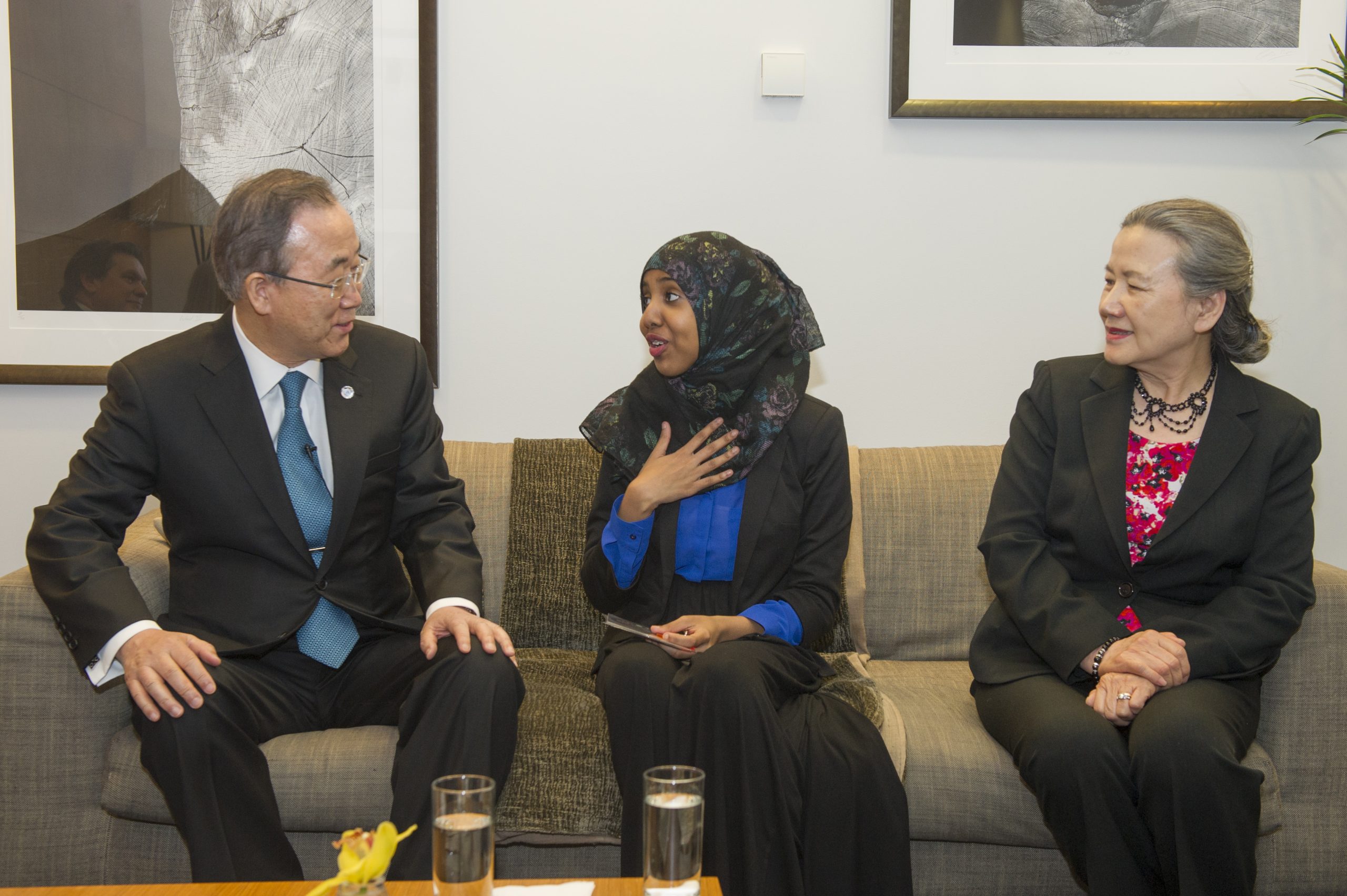
Human rights defender's story: Fahma Mohamed from the United Kingdom
17 year-old British human rights defender, Fahma Mohamed, is committed to freeing the world of female genital mutilation, starting with her own community in Bristol, UK.
A British human rights defender, Fahma Mohamed, is committed to freeing the world of female genital mutilation (FGM), starting with her own community in Bristol, UK.
From when she first heard about the practice of FGM from a teacher at the age of 14, Fahma Mohamed started to challenge its practice, one that studies estimate affects up to 137,000 women and girls in the UK alone.
‘I remember being in complete shock. I’m from an FGM affected community. Why didn’t anyone talk about it? Why isn’t anyone doing anything to stop it? Then I tried to put myself in their position. I couldn’t.’
Miss Mohamed is trustee of Integrate Bristol, an organization working, among other things, to eradicate FGM. Along with colleagues she spearheaded a petition campaign that collected over 230,000 signatures and earned the support of Malala Yousefzai and UN Secretary General, Ban Ki-Moon. The campaign resulted in mandatory training for all education staff on FGM.
‘We are still fighting for awareness on FGM to be taught in all classrooms across the UK. So many girls, both in the UK and further afar, are going through this absolutely traumatic experience. I saw it as my responsibility to give a voice to these young girls, many of whom have no support system and suffer entirely alone.’
Miss Mohamed identifies as a human rights defender, seeing it as a means to give voice to victims and encourage and empower other women and girls to voice their own opposition to FGM.
‘Many women from my Somali community were once afraid to speak out. Now, they’ve joined our campaign and, most notably, pledged not to put their daughters or their daughters’ daughters through it.’
Fahma is quick to underline the vast difference in her work as a defender and the particularly precarious situation of many defenders elsewhere.
‘For me it’s inspiring to hear people put their lives on the line for freedom. My battles are incomparable to theirs.’
However, Fahma’s FGM campaign has received its fair share of backlash.
When Integrate Bristol first started to work on the issue, FGM wasn’t mentioned in the media much. Many voices argued that the problem was being exaggerated.
On one occasion a group of 75 men, led by a female councilor in Bristol, protested outside the premiere of their film on FGM, Silent Scream.
‘They protested and chanted against us, we were 14 at the time! Some men even approached the families of the actors in our film, trashing the movie as a “porn film”. They were insisting that our teacher was forcing us.’
Integrate Bristol works to encourage young people to get involved in the fight against FGM. They have produced YouTube films and songs, including ‘Buckle Up’ and ‘Use Your Head’, as means to spread the word. These resources on challenging FGM have been shared with anti-FGM activists in other parts of the world, notably in Africa.
Miss Mohamed welcomes the UN response to FGM, including the first General Assembly resolution on the issue in 2012. As the General Assembly Third Committee continues its negotiations of a new resolution, Ms Mohamed stressed the importance of ensuring an explicit reference to FGM as a human rights violation.
‘Young girls are irreversibly mutilated against their will, and devastated physically, emotionally and mentally. Surely the deprivation of rights over your own body can only be described as a gross violation. Hundreds, maybe even thousands, of girls are being cut right at this moment. If the UN skirts around the issue, or hides behind euphemistic language, how will we help these girls? Or worse, how will we ever eradicate the custom if we can’t even say what it is?’
Miss Mohamed noted that if the UN did characterize FGM as a violation, this would resonate through the world, highlight the severity of FGM and underscore a global condemnation of the practice. She noted in particular that this could push the agenda in schools in countries such as Nigeria and Gambia where FGM is prevalent.
‘With education as our main weapon in this fight, we will end FGM once and for all.’
A resolution to intensify efforts to eliminate FGM is being tabled at the 69th Session of the General Assembly.
Photo: Secretary-General Ban Ki-moon (left) meets with Fahma Mohamed (centre), UN Photo/Eskinder Debebe
